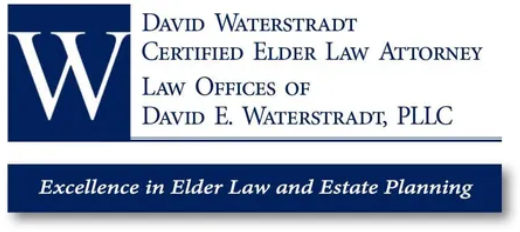
Michigan Updates Law on Funeral Arrangements
Who has the right to make decisions about your funeral under Michigan law? Surprisingly, it is not yourself. You can pre-plan your funeral, but the persons who have authority to make your funeral arrangements have no legal obligation to follow your plan. Michigan law currently defines the person with the right to make funeral decisions as your “next of kin.” This means your surviving spouse, or if you have no surviving spouse, the individual or individuals 18 years or older “related to the decedent in the closest degree of consanguinity.” This usually means your children or grandchildren. For people who have no descendants, it usually mean siblings, or even nieces and nephews. The problem with this law is that it is not very flexible and does not allow for tailoring to individual circumstances. It sometimes puts an estranged or distant relatives in charge of funeral arrangements. Think of an elderly single man who has been estranged from his only child for many years due to disputes they had earlier in life. That same estranged child will be in charge of the elderly man’s funeral arrangements. How likely is it that the estranged child will follow his father’s wishes? Or, if there are several children but they disagree on how to handle funeral arrangements, who makes the final decision? Under current law they all have equal priority and would have to go to court to resolve any disputes.
Thankfully, on March 29, 2016, Michigan law was changed. Now it will be possible for each individual to designate a “funeral representative” who has legal authority to make your funeral arrangements. To be legal and binding, your designation has to be in writing and witnessed by two persons. If your funeral representative fails to exercise their powers within 48 hours of receiving notice of death, the persons who would have had priority under prior law may act
Your funeral representative can be almost any person you want, even someone who is not a relative. The only restrictions are that your funeral representative cannot be an owner or employee of a funeral home, health care facility, cemetery or crematory, unless such a person is your spouse or relative. You can revoke or amend your funeral representative designation at any time.
Apparently there is some dispute whether a designated funeral representative will have a legal obligation to carry out your funeral wishes. The Michigan Funeral Director’s Association has stated that it does not believe this duty exists under the new law. However, a funeral representative is defined as a “fiduciary” under the new law. A fiduciary has the responsibility to act in the best interests of the person who appointed him. Therefore, there is arguably a legal duty to follow the decedent’s wishes. In any case, the new law is certainly an improvement. By allowing you to designate the person of your choice, you should have much more certainty that your wishes will be followed. As always, open communication with the person or persons you wish to designate as your fiduciaries (including funeral representative, patient advocate, agent under durable power of attorney, trustee and/or personal representative) will help ensure that your carefully laid plans are carried out.
If you would like further information on Designated Funeral Representatives or other elder law or estate planning topics, please contact David E. Waterstradt, JD, CELA at 231.773.1169 or by email at david@davidwaterstradt.com. David is a Certified Elder Law Attorney by the National Elder Law Foundation, the only elder law certification program accredited by the American Bar Association.








